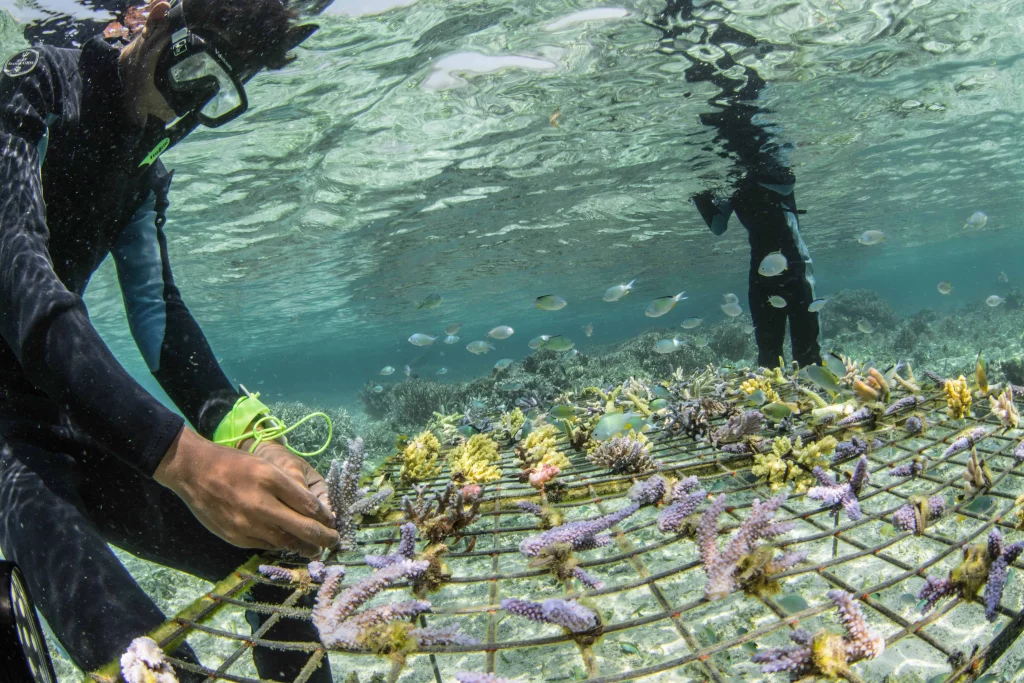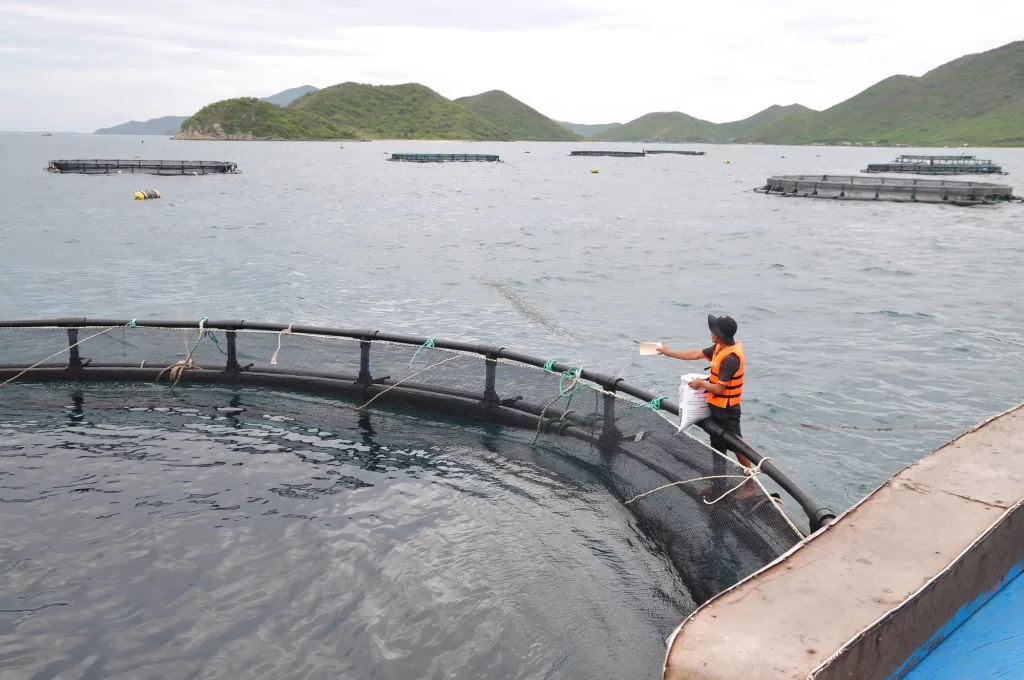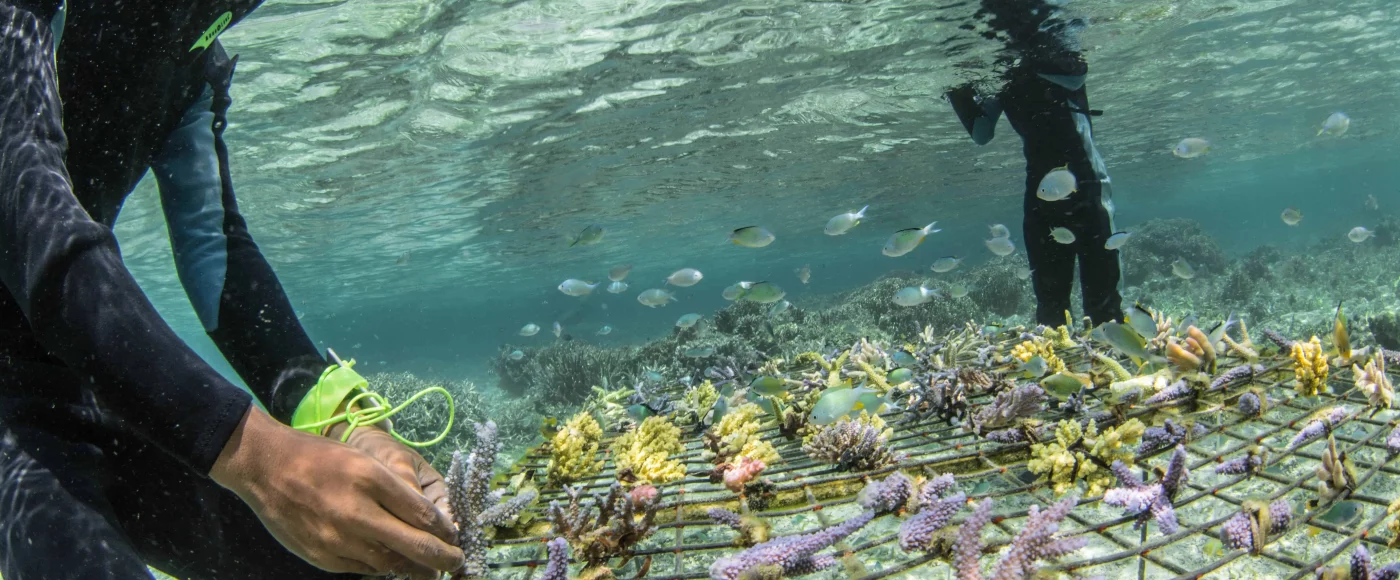Are you fascinated by the marine environment and want to know where it could lead you professionally?
The ocean and its inhabitants provide a space for life to flourish and subsequently support the other living systems on our planet. It is vast and diverse, with still many undiscovered secrets waiting to be explored. Marine biology is thus the study of the ocean, its environment, its many living organisms, and how these interact with one another.
A degree in marine biology means knowledge in a field with diverse career opportunities.
In this article, we’ll explore the variety of settings where marine biologists apply their skills and knowledge.

Where Can Marine Biologists Work
With a degree in marine biology, you have access to a diverse array of career opportunities:
- Academic roles: Through universities, marine biologists can teach, conduct theoretical and applied research, and contribute to scientific publications in their field.
- Environmental consulting careers: Marine biologists offer their expertise to businesses and organizations in terms of environmental assessments of development projects and management.
- Non-profit work: Marine biologists work to protect marine biodiversity, spread awareness, and advocate for policy changes to benefit the marine environment.
- Industrial professions: Engineering and innovation such as in marine sustainability and renewable energies.
- Non-research-based positions: Alternative careers that might engage the arts, education, and communication.
- Farms and Aquaculture Facilities: Developing sustainable practices, enhancing aquatic species cultivation, and ensuring environmental health.
- Pharmaceutical Companies: Contributing to groundbreaking medical research by discovering and harnessing the unique compounds found in marine organisms for drug development.

When thinking of traditional marine biology roles, one could think of fieldwork versus lab work.
| FIELDWORK | LAB WORK |
|---|---|
| Depending on your project length and commitment, fieldwork can be less consistent and more flexible in terms of work hours and schedules. | Lab work hours may be more structured, however depending on whether you are working for a corporation, university, or a funded research grant, pressure to meet deadlines can vary and can mean extended overtime in some cases. |
| Fieldwork can be more physically demanding as you can be diving, working outdoors, or at sea in changing weather conditions. | Academic research might involve an extended amount of time indoors and with high attention to detail. |
| A hands-on experience that allows you to directly interact with a diverse variety of environments and organisms. | An environment that requires detailed analysis and experimentation, which can allow you to contribute to science and our understanding of marine research. |
Today, there is an abundance of marine biology roles emerging that consist of their own mix of fieldwork and research, or even something else entirely. Today, roles range from research scientists to scuba diving instructors, environmental educators, and underwater cinematographers. Roles can be extremely specified, as well as broad, and involve a combination of marine biology and other fields of interest. Finding a balance within these work styles will help you determine a career path in marine biology.
Opportunities and Outlook
In the United States, the average base salary for a marine biologist is about $47,000 per year, with a job outlook growth rate of 5% from 2018 to 2028.
Currently, jobs within marine biology fields are generally quite competitive, the most competitive being environmental consultancy jobs. This is amongst a variety of others such as research assisting, commercial diving, biologist and ecologist jobs, marine engineering, university professor roles and data science work.
The current geographic hotspots for marine biology jobs reside in Florida as there is a vast and extensive coastline with several marine research facilities. For the same reasons, California is also a hotspot for jobs, along with Hawaii, Washington and Massachusetts. Internationally, any place known for ocean research or is located near large bodies of water will be a possible choice for relocation when considering jobs abroad in the marine biology field.

Making a Splash with a Marine Biology Degree
There are many creative and unexpected jobs for those with a marine biology degree looking for non-traditional experience, in and out of the water. These can include underwater photography roles, underwater archaeology, marine education positions, ship captaining, as well as landscape or maritime architect roles.
The possibilities of working in diverse industries are vast and continuously evolving. To leverage a marine biology degree in related fields it would help to have specialized knowledge on a subject you are passionate about, as well as skills for research, data analysis, and scientific writing in addition to a general understanding of legal regulations. A bachelor’s degree in marine biology might get you entry-level jobs in your field of interest, however specialized and higher paying jobs are generally looking for people with a Masters or PhD. as they require someone with in-depth knowledge on a subject.
Being a marine biologist can take you to places all over the world. Our planet is 70% water. About 40% of the human population resides in coastal communities and depends on the ocean in one way or another for sustenance. There is still so much to be discovered about the ocean, a lot that needs to be protected and advocated for, and much fascinating information that has yet to be widely shared.

Conclusion
As the human population grows, the ocean becomes more pressed for resources and thus requires adequate management to maintain its balance within the environment. Understanding the interconnectedness and importance of the ocean as an intrinsic entity and also as a support system for the rest of the planet, is integral to advocating for conservation and innovation. This is why marine biology is an important study.
A passion for the ocean and a career in marine biology, or similar, is a rewarding path. It opens doors to a variety of work styles and workplaces internationally and is most certainly a fulfilling career path to choose.
FAQs
Where do marine biologists work the most?
In the US, the largest employer of marine biologists is the National Oceanic and Atmospheric Administration (NOAA). Globally speaking, primary employers reside within wildlife branches of the government and universities.
Where would I work if I was a marine biologist?
Ideally in the field in a tropical reef location. Either working with wildlife, or with coastal communities in building an environmentally, socially, and culturally sustainable way of life.
Do marine biologists go into the ocean?
This depends on the field of your specified work. Marine biology jobs can range from anything from scuba diving fieldwork to marine engineering that may require you to be in or near the water, to lab research and environmental education which require none of either.
Do marine biologists work indoors or outdoors?
Either or both. Field work generally takes place outdoors whilst lab research is indoors. However, new and flexible careers can consist of a mix, such as underwater cinematography or teaching scuba diving, so it really depends on the specific job description and your area of interest.




